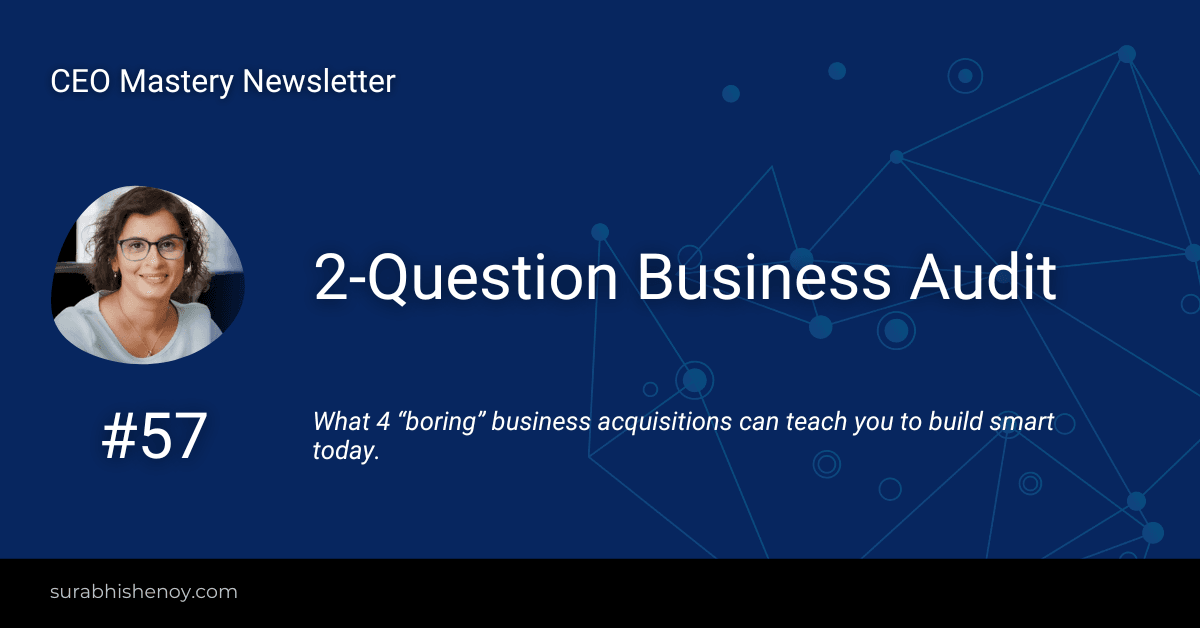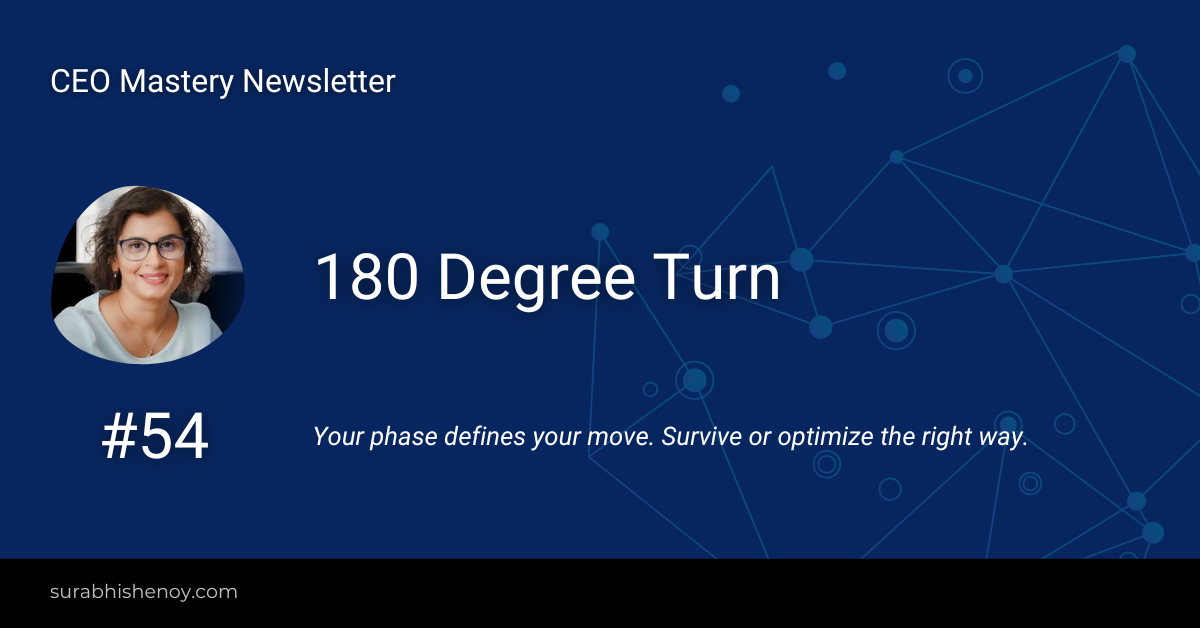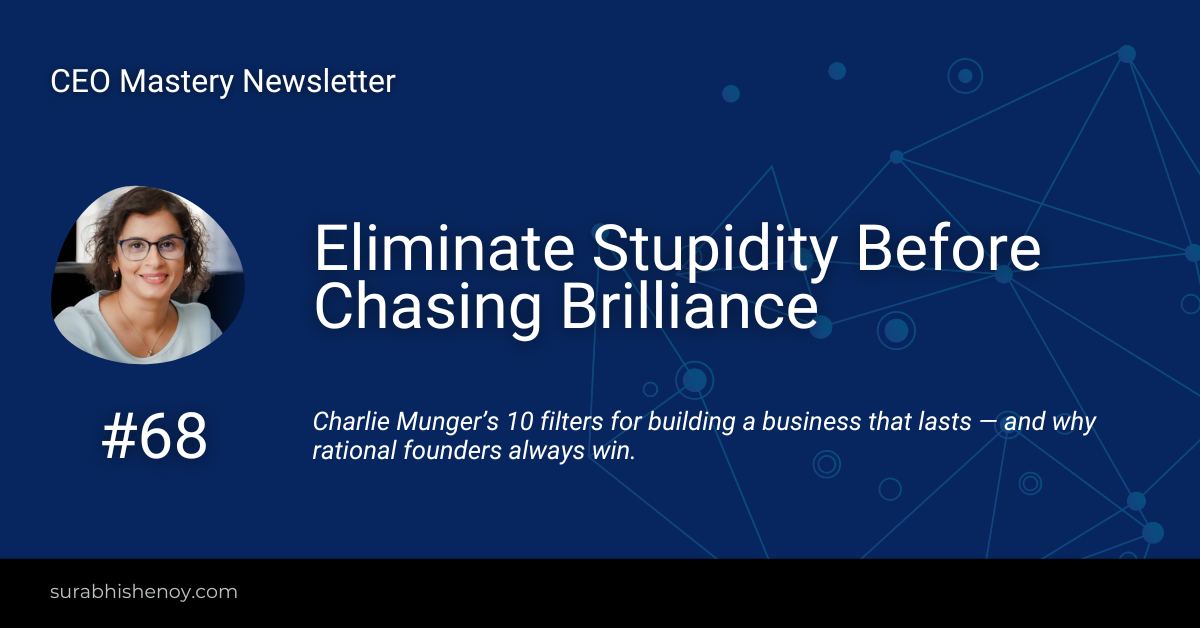I meet two types of founders.
The first think they’re building the next unicorn – but they’re burning out trying to prove it.
The second are quietly profitable and growing – but assume they’re “just another service business.”
Here’s what both miss: The market doesn’t value what you think it does.
The Market Value Map
Last month, I studied 4 tech business acquisitions.
None were hyped unicorns. No viral growth stories. No Silicon Valley buzz. They are “boring” businesses.
But they got acquired — quietly, for serious money.
Here’s what I discovered: The market doesn’t reward “special.” It rewards stable.
And there’s a simple framework to understand exactly it applies in practice.

Every buyable business lands in one place on this grid:
Y-axis: Revenue Quality (One-time → Recurring)
X-axis: Founder Dependency (Low → High)
Only ONE quadrant gets premium valuations: Recurring, predictable, Sticky Revenue + Low Founder Dependency
That’s it. That’s the secret to building a business that the market values.
All 4 companies I studied landed there. And that’s where your business needs to head if you want to build something valuable.
Proof: 4 "Boring" Exits That Nailed This
Let’s see what these boring businesses built that market respected and buyers chased.
- Maven Wave – $189M Exit
What: Salesforce consulting firm
Key Factors:
Recurring enterprise contracts with Fortune 500 clients.
Systems-driven delivery model that ran without founders.
→ Lesson: Services can exit big when structured for recurring revenue - Electric Cloud – Acquired by CloudBees
What: DevOps automation tools + support
Key Factors:
17 years of mission-critical infrastructure that clients couldn’t unplug.
Team of 80-100 ran operations independently.
→ Lesson: Small teams can build big value when they’re essential - Media Temple – $100M+ to GoDaddy
What: Premium hosting for creatives
Key Factors:
15 years of loyal, recurring customers.
Brand trust that buyer couldn’t build internally.
→ Lesson: Time builds durability that beats momentum - Real Dynamics – Acquired by Argano
What: Microsoft Dynamics consulting
Key Factors:
Deep specialization in existing platform.
No proprietary IP needed — just delivery excellence.
→ Lesson: You don’t need to invent to be valuable
I have added links to all 4 case studies for deeper look below.
How Valuable Is Your Business?
Audit your business with 2 questions.
- “How dependent is my business on me personally?”
- “How much of my revenue is recurring vs one-time projects?”
Plot yourself on the Market Value Map. Be honest.
Then, for every future decision, use these filters:
- “Does this make my business less dependent on me?”
- “Does this improve my revenue to be more recurring?”
If yes to both → you’re building smart.
Note: Business valuations depend on many factors – market conditions, buyer needs, timing, and more. But this simple framework helps you build the foundational elements that buyers (the market) consistently value.
Take Action
If you’re in the high founder dependency quadrant: My Founder’s Freedom Blueprint shows you the exact systems to reduce your dependency while growing revenue.
Ready to build a business buyers want? Book a free clarity call. I’ll help you map your path to the high-value quadrant.
Thank you for being here. I will see you next Thursday.
Surabhi
P.S. These 4 exits happened because founders built for the market, not their ego. That’s the difference between staying stuck and building something that sells.
P.P.S (standard one from kit)
Case studies of the 4 “boring” businesses:




